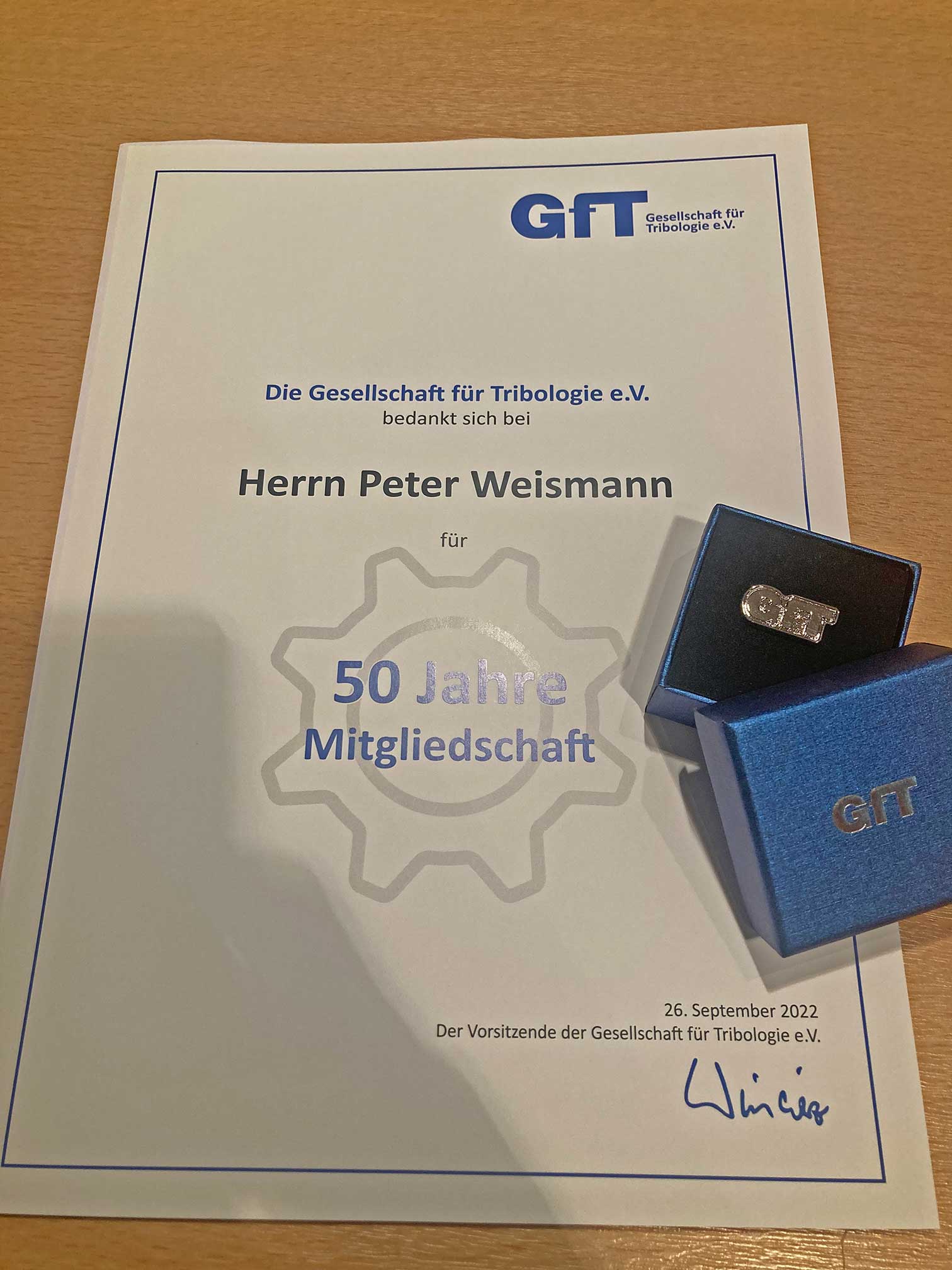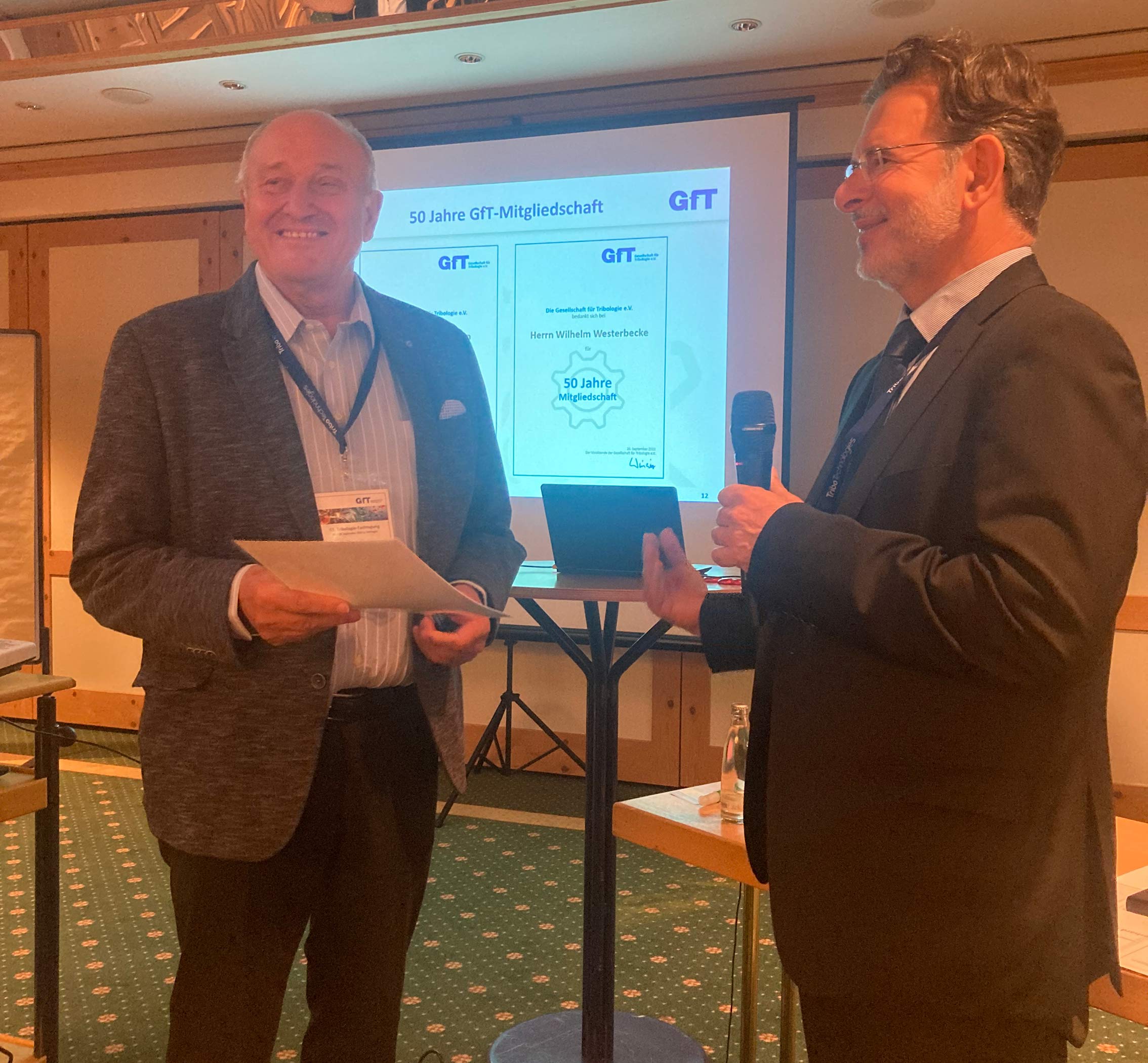During his studies focused on mechanical engineering, Peter Weismann was fascinated by lubricants and the teaching surrounding friction and wear. As part of his thesis, in 1972 he developed a test bench to recover oil in oil-mist lubrication at the former Hoesch Stahl AG plant in Dortmund. Optimised back-misting nozzles allowed the oil content to be reduced in any air escaping by more than 60 %. This represented a huge step forwards in protecting the environment and, above all, employees’ well-being. Even back then, Peter took a sustainable approach to everything he did, even though talk of ’sustainability’ was just as rare as ’tribology’.
After finishing his studies, he held management positions in sales departments in the mineral oil industry before laying the foundations for OELCHECK GmbH as we know it with his wife, Barbara, in 1991. The company has since become a recognised market leader in lubricant and operating fluid analyses in Europe, and Peter is still involved at 75 years of age. As Technical Director (on the Advisory Board), he is a key driving force behind both OELCHECK GmbH and the sustainable use of lubricants. In October of this year, members of Alliance 90/The Greens visited the OELCHECK laboratory in Brannenburg to learn about his initiative on waste caused by changing oils following rigid specifications set by oil and machine manufacturers.
However, if oils are monitored using oil analyses on a regular basis before they are changed, the oils can normally continue to be used without a second thought. Fewer unnecessary oil changes has the following benefits:
■ Less need for fresh oil – and therefore lower costs
■ Less oil extraction
■ Fewer energy-intensive refinery processes
■ Less transport of fresh and used oils
■ Less repeat refining or combustion of used oils
■ Significantly lower CO2 emissions overall
Less can be so much more!
To protect our planet, we all need to take a critical look at our behavioural patterns and be ready for change, both in our private and professional lives. We should limit our use of the Earth’s resources wherever and whenever possible. Saving lubricants and operating fluids that can still be used is just one small piece of the puzzle, but an important one nonetheless – and with far-reaching effects.


